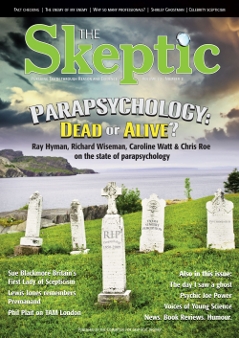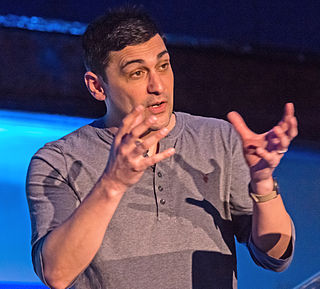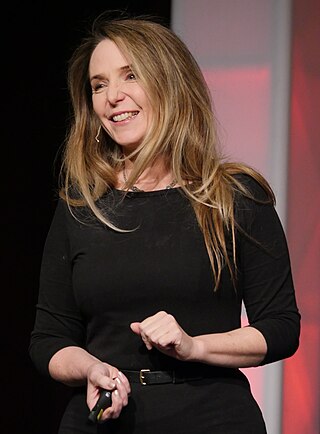In philosophy, Occam's razor is the problem-solving principle that recommends searching for explanations constructed with the smallest possible set of elements. It is also known as the principle of parsimony or the law of parsimony. Attributed to William of Ockham, a 14th-century English philosopher and theologian, it is frequently cited as Entia non sunt multiplicanda praeter necessitatem, which translates as "Entities must not be multiplied beyond necessity", although Occam never used these exact words. Popularly, the principle is sometimes paraphrased as "The simplest explanation is usually the best one."

Scientific skepticism or rational skepticism, sometimes referred to as skeptical inquiry, is a position in which one questions the veracity of claims lacking empirical evidence. In practice, the term most commonly refers to the examination of claims and theories that appear to be beyond mainstream science, rather than the routine discussions and challenges among scientists. Scientific skepticism differs from philosophical skepticism, which questions humans' ability to claim any knowledge about the nature of the world and how they perceive it, and the similar but distinct methodological skepticism, which is a systematic process of being skeptical about the truth of one's beliefs.

John Venn, FRS, FSA was an English mathematician, logician and philosopher noted for introducing Venn diagrams, which are used in logic, set theory, probability, statistics, and computer science. In 1866, Venn published The Logic of Chance, a groundbreaking book which espoused the frequency theory of probability, arguing that probability should be determined by how often something is forecast to occur as opposed to "educated" assumptions. Venn then further developed George Boole's theories in the 1881 work Symbolic Logic, where he highlighted what would become known as Venn diagrams.

Michael Brant Shermer is an American science writer, historian of science, executive director of The Skeptics Society, and founding publisher of Skeptic magazine, a publication focused on investigating pseudoscientific and supernatural claims. The author of over a dozen books, Shermer is known for engaging in debates on pseudoscience and religion in which he emphasizes scientific skepticism.

The Skeptic is a British non-profit skepticism magazine. It describes itself as "the UK's longest running and foremost sceptical magazine, which examines science, skepticism, secularism, critical thinking and claims of the paranormal." It is also known to take a critical stance towards alternative medicine.

The New Inquisition is a book written by Robert Anton Wilson and first published in 1986. The New Inquisition is a book about ontology, science, paranormal events, and epistemology. Wilson identifies what he calls "Fundamentalist Materialism" belief and compares it to religious fundamentalism.

Skepticality was the official podcast of The Skeptics Society's Skeptic magazine. Beginning in May 2005, the podcast explores rational thought, skeptical ideas, and famous myths from around the world and throughout history. Each episode is an audio magazine featuring regular segments by contributors who are specialized in specific areas of critical thought followed by featured content which is usually in the form of an interview with a researcher, author, or individual who is helping promote skeptical thought and/or science in an effective way. It has featured interviews with James Randi, and scientists, such as authors and astronomers Phil Plait and Neil deGrasse Tyson, Greg Graffin from Bad Religion, Adam Savage from the MythBusters, songwriter Jill Sobule, author Ann Druyan and science communicator Bill Nye.
Climate Audit is a blog founded in 2005 by Steve McIntyre.

Paul Allan Offit is an American pediatrician specializing in infectious diseases, vaccines, immunology, and virology. He is the co-inventor of a rotavirus vaccine. Offit is the Maurice R. Hilleman Professor of Vaccinology, professor of pediatrics at the Perelman School of Medicine at the University of Pennsylvania, former chief of the Division of Infectious Diseases (1992–2014), and the director of the Vaccine Education Center at the Children's Hospital of Philadelphia.

Steven Paul Novella is an American clinical neurologist and associate professor at Yale University School of Medicine. Novella is best known for his involvement in the skeptical movement as a host of The Skeptics' Guide to the Universe podcast and as the president of the New England Skeptical Society. He is a fellow of the Committee for Skeptical Inquiry (CSI).

Rebecca Watson is an American atheist blogger and YouTuber. She is the founder of the blog Skepchick and former co-host of The Skeptics' Guide to the Universe podcast. She also previously co-hosted the Little Atoms podcast.
Richard Horton is a retired Police Sergeant with Lancashire Constabulary, and former blogger who lives in Lancashire. He is the author of the Orwell Prize-winning anonymous blog NightJack which commented on his work as a police officer during his time as a Detective Constable.

Laurie Penny is a British journalist and writer. Penny has written articles for publications including The Guardian,The New York Times and Salon. Penny is a contributing editor at the New Statesman and the author of several books on feminism, and they have also written for American television shows including The Haunting of Bly Manor and The Nevers.

Kylie Sturgess is a past President of the Atheist Foundation of Australia, an award-winning blogger, author and independent podcast host of The Token Skeptic Podcast. A Philosophy and Religious Education teacher with over ten years experience in education, Sturgess has lectured on teaching critical thinking, feminism, new media and anomalistic beliefs worldwide. She is a Member of the James Randi Educational Foundation (JREF) Education Advisory Panel and regularly writes editorial for numerous publications, and has spoken at The Amazing Meeting Las Vegas, Dragon*Con (US), QED Con (UK). She was a presenter and Master of Ceremonies for the 2010 Global Atheist Convention and returned to the role in 2012. Her most recent book The Scope of Skepticism was released in 2012. She is a presenter at Perth's community radio station RTRFM, and a winner at the 2018 CBAA Community Radio Awards in the category of Talks, with the show Talk the Talk In 2020 she was in the final eight in the Three-Minute Thesis (3MT) Asia-Pacific virtual showcase.

Adam David Rutherford is a British geneticist and science populariser. He was an audio-visual content editor for the journal Nature for a decade, and is a frequent contributor to the newspaper The Guardian. He hosts the BBC Radio 4 programmes Inside Science and The Curious Cases of Rutherford and Fry; has produced several science documentaries; and has published books related to genetics and the origin of life.

The Good Thinking Society is a nonprofit organisation promoting scientific scepticism established by Simon Singh in September 2012.
QED: Question, Explore, Discover is an annual skeptical conference held in Manchester, England. QED is organised by North West Skeptical Events Ltd (NWSE), a volunteer-owned non-profit organisation originating from a collaboration between the Merseyside Skeptics Society and the Greater Manchester Skeptics Society.

Edmund Soon-Weng Yong is a British-American science journalist and author. In 2021, he received a Pulitzer Prize for Explanatory Reporting for a series on the COVID-19 pandemic. He is the author of two books: I Contain Multitudes: The Microbes Within Us and a Grander View of Life (2016) and An Immense World: How Animal Senses Reveal the Hidden Realms Around Us (2022).

Deborah Hyde is a British sceptic, folklorist, cultural anthropologist, Ufologist, fellow of the Committee for Skeptical Inquiry, and editor-in-chief of The Skeptic. She writes and lectures extensively about superstition, cryptozoology, religion and belief in the paranormal, with special regard to the folklore, psychology and sociology behind these phenomena, and has been introduced as a "vampire expert". Hyde has also worked in the motion picture industry.

Britt Marie Hermes is an American former naturopathic doctor who became a critic of naturopathy and alternative medicine. She is the author of a blog, Naturopathic Diaries, where she writes about being trained and having practiced as a licensed naturopath and about the problems with naturopaths as medical practitioners.















